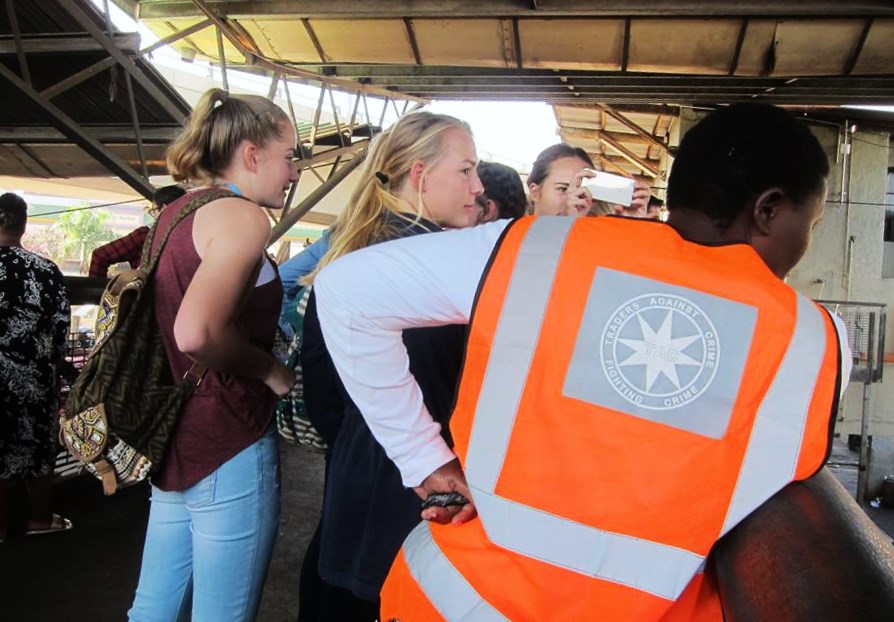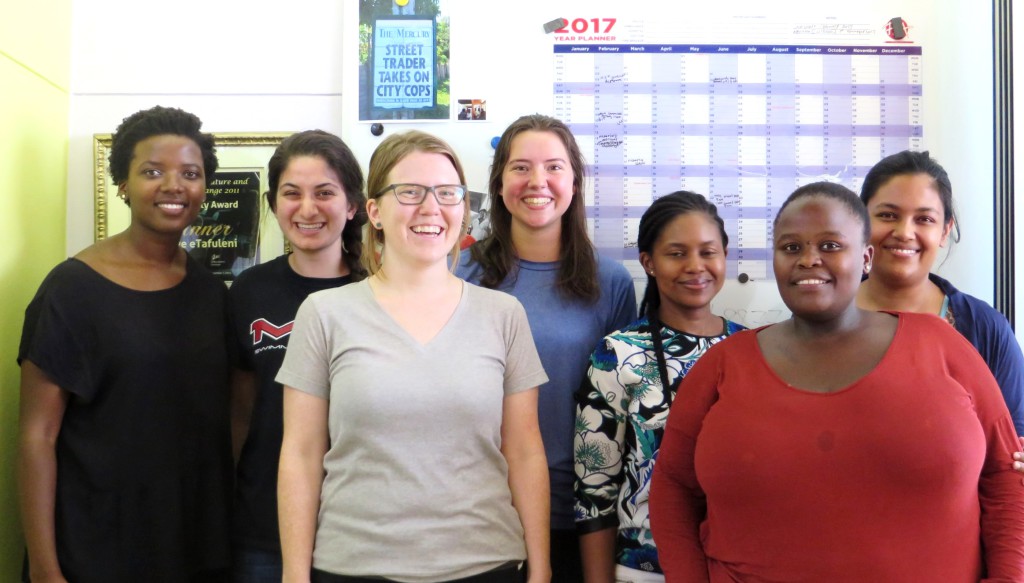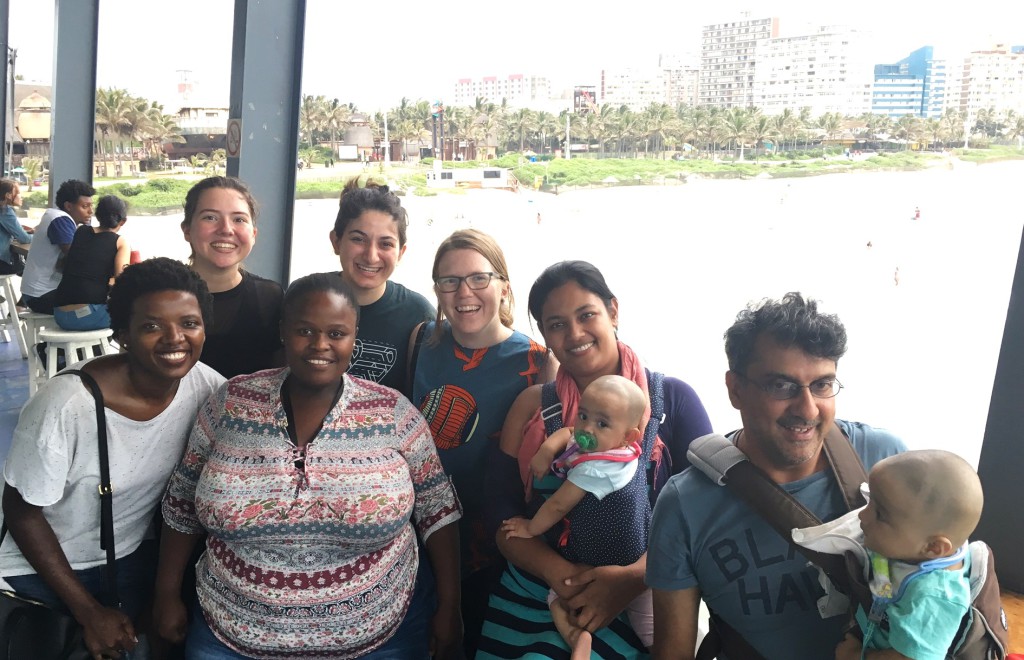Emma Castaños & Teresa de Figueiredo
(Feature image: Phumelele Mkhize)
Smiling faces, cake, and sparkling juice greeted us at our first staff meeting. The Asiye eTafuleni (AeT) team had put together a small celebration; not for us, the newly arrived MIT group, but for the service of Lihle on her last day of work. Lihle is a Hair Dresser from Warwick Junction, now an AeT intern alumna and a trained Markets of Warwick tour guide. The mutual thanks of the AeT team and Lihle during their goodbyes were our first introduction to the collaborative and welcoming environment that we would discover during our stay with AeT.

On that same day, Patrick, Nompumelelo, and Phumelele, took us on a tour of Warwick. We saw a market that was bustling with activity, emanating music and energy, and brimming with friendly, hard-working, and kind people. For the rest of our stay, we could always rely on the advice from Nonhlanhla about the best route to take through the market. In the market, we listened to the hubbub around us and the interpretations of our hosts. From Patrick, we learned about the vendor organizations and their self-regulating functions. For example, Traders against Crime formed to combat crime in the highest crime area of Warwick. Today, with the Traders against Crime unit, this area is one of the safest areas of Warwick. We learned that if someone runs past the traders, the traders will stop the running person and make sure they are late for a train and not running away from a crime committed. This illuminated a belief that Richard has shared with us earlier in the day, that Warwick was a democracy in a true meaning of the word.

In the following weeks, we witnessed firsthand the AeT team’s demonstrated understanding of the complex organism that is the Markets of Warwick. Not only does the team know how to work with the stakeholders in the markets, they hold a deep respect for their autonomy and authority. Patrick constantly told us that if one gives the traders respect, they will give respect in return. This principle was shown in practice during our interviews with the vendors. Phumelele, Nompumelelo, and Patrick made sure to explain to the vendors what work we were doing and how our work would directly benefit the vendors. Furthermore, we emphasized that the vendors were the experts in our research and it was crucial we learned from their experiences and knowledge. Through AeT, we learned to foster and appreciate respect for the individual vendors and the market communities.

During our preparation for this internship, we read about Participatory Action Research (PAR). We learned that PAR requires including the beneficiaries of the research and ensuring equal opportunity and engagement in the research process and development. It is not simply researchers coming in, completing their work, and leaving; but rather, researchers engaging with the community and empowering the vendors to have ownership over the information and outcomes of the research. Through conversations with Tasmi, we have learned how AeT masterfully applies the concept of PAR. They engage interns that have worked in Warwick Junction, train traders with research skills, hold community meetings and workshops to solicit meaningful input in their project work, and even invite vendors to international conferences. AeT provides an excellent example of PAR and it was a wonderful experience to learn firsthand from them.

In our last week, we learned the meaning of Asiye eTafuleni which means “a seat at the table” in Zulu. This phrase epitomizes AeT’s organizational approach and thus is a perfect phrase to describe their work. In short, the values of respect permeate the AeT work culture. During our time with AeT we felt welcomed and valued, and we thoroughly enjoyed our time in Warwick! We truly feel honored and privileged to have had a seat at this table.
About the Authors:
Emma is a mechanical engineering student and worked with AeT on a Public Lavatories project. Teresa is a materials science and engineering student and worked with AeT on a Market Valuation project. Emma and Teresa are researchers with MIT CREATE, under the executive direction of Kate Mytty. MIT CREATE was co-founded by John Kennedy and Campbell Mayer. It is an action-oriented lab in the MIT School of Architecture and Planning that provides opportunities for MIT students, communities, and practitioners to work together to develop mechanisms to measure the impact of the informal economy, support inclusive design efforts that define productive work spaces, and encourage economic development.

